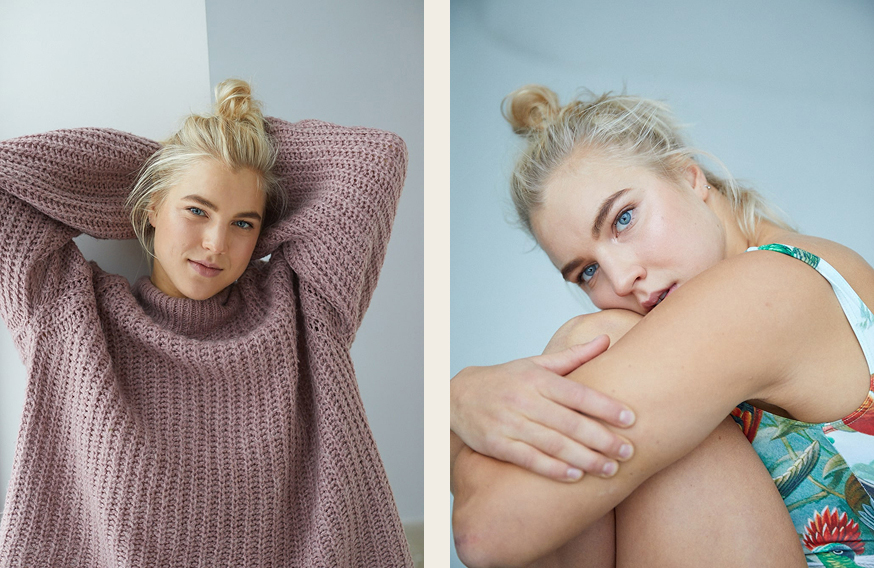Rūta Meilutytė
Joy must come from the process

A conversation about peak performance with Olympic champion Rūta Meilutytė
Rūta Meilutytė, former Olympic champion, elite athlete, and now a student at Vytautas Magnus University, carries this truth close to her heart: joy must come not only from results, but from the process itself.
This isn’t theory — it’s lived experience. Despite standing on the world’s highest sporting podiums, Rūta is certain: the road to gold must hold its own kind of joy.
In her keynote “My Journey,” Rūta speaks openly about what it means to stay true to yourself, to listen to your inner voice under the crushing weight of expectation. She’s one of the newest keynote speakers at @Shibui.
Less is more: a philosophy that saved her
“My professional career had two phases,” Rūta begins. “The first was in England — all hard work, mechanical grind, the pressure to deliver, the heavy sense of responsibility. It drained all playfulness from me.
Then, training in the US with coach Dave Salo, I rediscovered what it meant to be playful, to work hard and still enjoy what I was doing.”
Training under John Rudd in England brought stunning results — Olympic gold — but each year the load increased, the hours piled up.
“To reach the top, I couldn’t avoid hard work. But working at that threshold, at the edge of your mental and physical limits, you risk starting to hate what you love.”
In the USA, she encountered Dave Salo’s philosophy: less is more.
“The training load was much lower compared to the UK. Dave’s a coach who values quality over quantity. He trusts his expertise, his methods, and has proven time and again that you can achieve world-class results by doing less,” Rūta shares.

Photos by Rokas Darulis
The greatest lesson: listen to Yourself
What’s the most important thing she’s learned on both sides of the Atlantic?
“To listen to yourself, to find joy and satisfaction in the hard work. To discover the reward inside the process — and while you celebrate the results, never see them as the final or only goal. And to never be afraid to take care of your own needs.”
Happiness does not depend on medals
Most of us have pondered these things in quiet moments — but few have faced them on Rūta’s scale, under the weight of global attention.
“If you enjoy the sport — its joys and pains — if you see meaning in it, if your self-worth and happiness don’t hang on results alone, then competition becomes fun. You relax. Results can thrill or disappoint, sure, but they shouldn’t define your happiness.”
Standing on the starting block, goggles tight, heart pounding, Rūta ran through every scenario in her mind — from a flawless race to a broken goggle strap. She mentally rehearsed each outcome, so she’d know how to respond in the moment.
Learning to step away from the edge
What was hardest at the peak of global sport? And what helped the most?
“The hardest thing was not carrying other people’s expectations. To listen to yourself, to remember your own desires. I’m still learning this today. And it helped immensely to realise that life isn’t black and white, win or lose.”
Leaving elite sport, Rūta had to “unlearn” a lot: that not everything is a competition, that you don’t have to be the best everywhere, always. But many of the lessons from the pool still serve her well: consistency, patience, the understanding that whatever you do, the process will take time, effort — and that’s as it should be.
Swimming for joy, not just victory
Today, Rūta still swims — not for medals, but for pleasure.
She admits, with a smile: sometimes the old competitor stirs inside, pushing her to swim faster, harder, more.
“And when I manage to quiet that voice, it’s the sweetest freedom.”
“Now I try to fully immerse myself in the process, in whatever work I’m doing. I look for the opportunity to learn something new in every situation,” says Rūta, now a university student and, more importantly, a woman finding her own pace.
If you think Rūta is the right fit for Your Team, contact us and book a keynote session “Path as purpose” at @Shibui.
